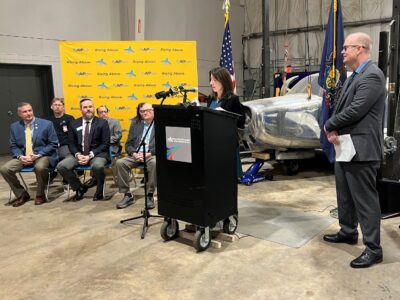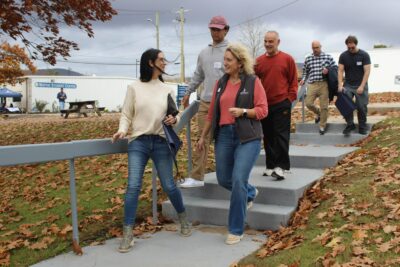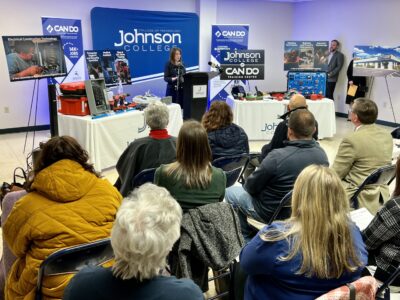Students can now enroll in Johnson College’s new two-year Aviation Technology associate degree program scheduled to begin with the Fall 2023 semester.
The Aviation Technology program prepares students as entry-level technicians with the latest information on diagnosis, repair procedures, preventative maintenance, and necessary safety application in aviation technology. Through a partnership with the Wilkes-Barre/Scranton International Airport, students will complete airframe and power plant instruction in a lab located at the airport, pending approval by the Middle States Commission on Higher Education. This opportunity will provide students with a very unique and hands-on learning experience in industry.
The program will provide students with the knowledge and skills outlined in the Federal Aviation Administration’s (FAA) Mechanics Airman Certification Standard (ACS) in preparation for the FAA licensure exam for general, airframe, and powerplant knowledge.
“The aviation technology industry expects rapid-paced growth within the next decade,” said Dr. Katie Pittelli, Johnson College’s President and CEO. “Johnson College is prepared to meet that demand by offering our students hands-on experience and training on campus and at in-field labs, giving them an advantage to succeed in this in-demand industry.
Students within this program will be prepared for careers in the aviation technology industry as aircraft mechanics, airframe mechanics, aviation technicians, aircraft specialists, and similar roles. Per the Bureau of Labor Statistics, the aviation technology field has a 6% growth potential through 2031. Graduates have the opportunity to earn a median annual income of up to $65,550.
“We’re excited to have this new partnership with Johnson College”, said Carl R. Beardsley, Jr., AVP Executive Director. “This new degree program will greatly benefit the aviation industry, and we support Johnson College in its efforts to meet the demand in these fields in the world of aviation.”
Johnson College has received a three-year Advanced Technological Education grant for $307,706 from the National Science Foundation to support the Aviation Technology program.
For more information about or to enroll in this program, please contact Johnson College’s Enrollment Department at 570-702-8856 or enroll@johnson.edu or visit johnson.edu/divisions-of-study/transportation/aviation/.









